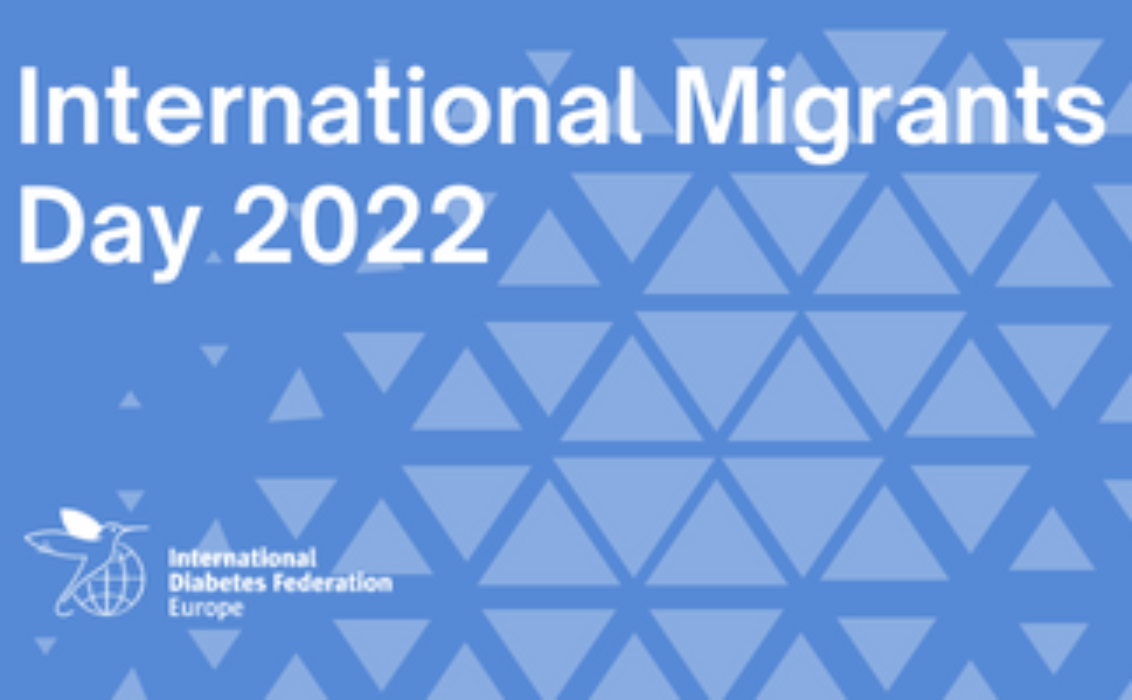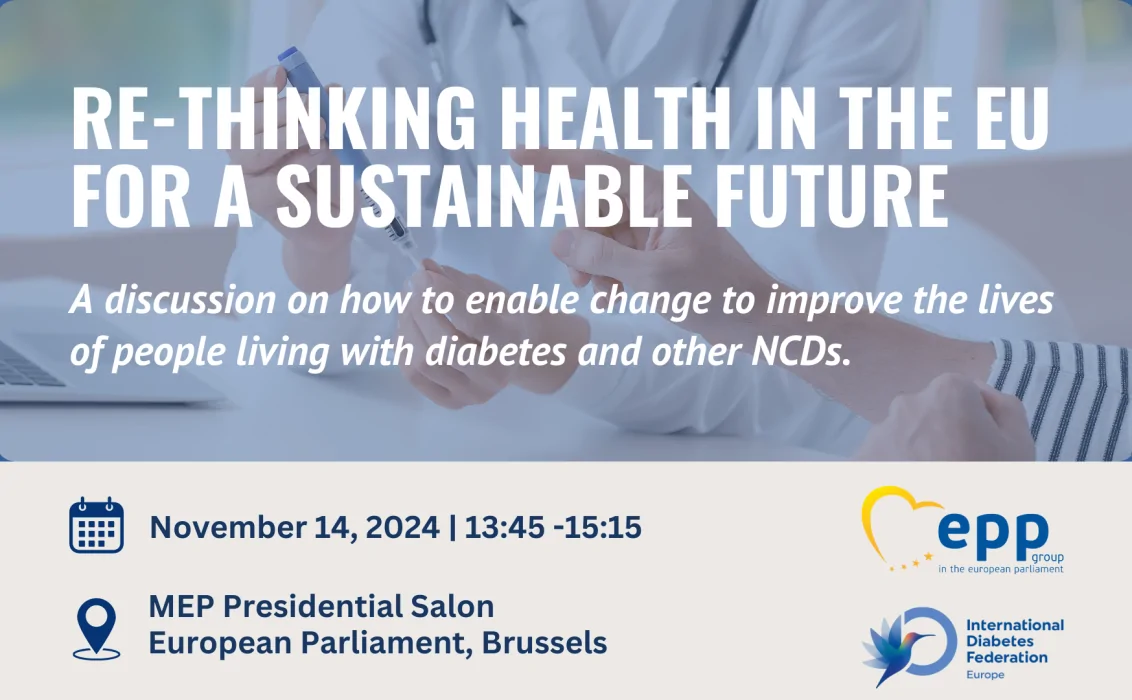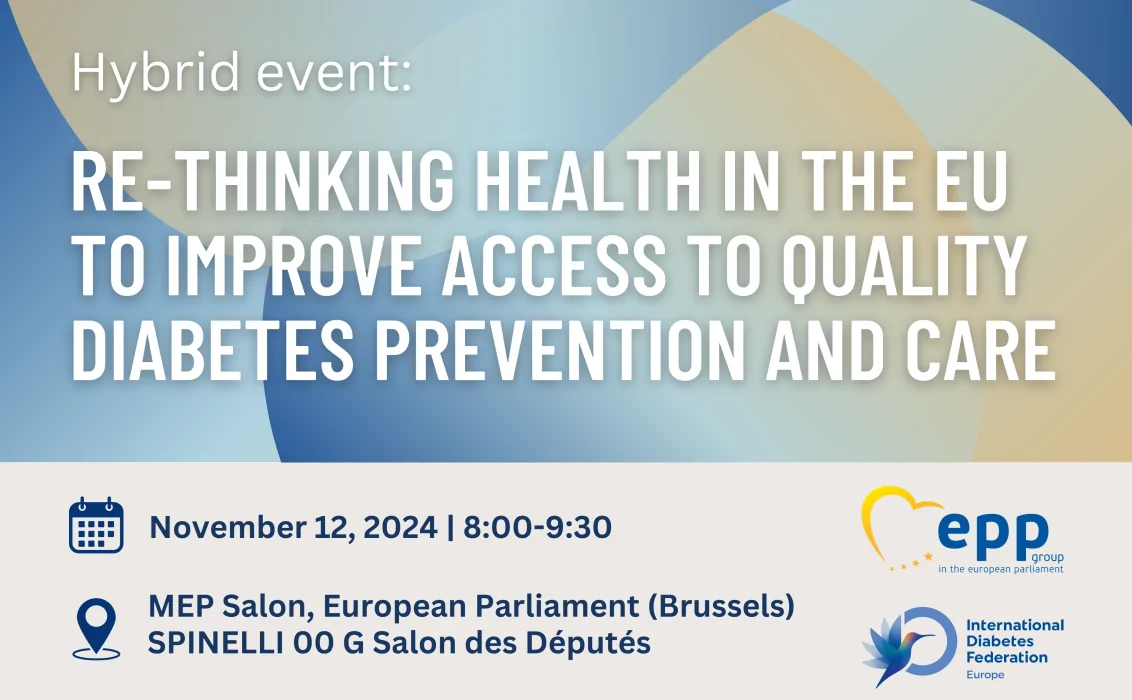December 18 marked International Migrants Day. On this occasion, we want to highlight the challenges and inequalities that migrants and displaced people living with diabetes (PwD) face in accessing healthcare and achieving the best possible health outcomes and quality of life.
Barriers to accessing diabetes care and management for migrants and displaced people are legion, and they can vary depending on different factors such as the country they travel to, their socio-economic status, and the stage of their journey.
Diabetes is a complex and multi-faceted condition that requires round-the-clock self-management and uninterrupted access to medicines and care. Therefore, any displaced/migrating PwD will face a series of changes in their daily life which will impact their diabetes management and care.
The challenges that PwD often face at the time of displacement, when settling in a new environment, and in the long-term, can differ in the way they impact health outcomes and quality of life, and require specific solutions.
Humanitarian crises
In the event of forced migration resulting from man-made conflicts, natural disasters and pandemics, PwD are particularly vulnerable. They often encounter disruption in access to health services, diabetes medicines and devices as well as sometimes difficulties in accessing food supplies which can affect their immediate medical needs and diabetes management in the short-term, while also leading to future complications [1]. Moreover, the stress caused by living through a humanitarian crisis can further complicate PwD’s ability to manage their condition. In the case of people living with type 1 diabetes (T1D), lack of access to insulin and continuity of care can be life-threatening. As well as the short-term consequences of humanitarian crises, the long-term impact of healthcare disruptions (e.g., lack of screening) on the development of diabetes-related complications should not be underestimated.
The recent war in Ukraine has clearly demonstrated the many challenges PwD can face in these circumstances and the need for concerted actions to provide assistance. Humanitarian aid organisations such as Direct Relief have played a crucial role in the delivery of medical supplies to PwD and people with other conditions. Community-level initiatives such as helplines and remote consultations have also proved essential when access to care through formal channels has been limited or interrupted. Since the beginning of the war in Ukraine, to coordinate efforts in collaboration with our member associations, IDF Europe developed the platform “Connect Solidarity” which highlights the fundraising initiatives endorsed by IDF Europe to support the delivery of medical supplies to PwD in Ukraine, as well as our own fundraising efforts. During the first months of the war, we also shared the personal stories of PwD in Ukraine to outline the needs of the diabetes community affected by the conflict, and illustrate its cohesion and commitment in and out of the country (read their interviews here and here).
Settling in a new country
When PwD are settling in a new country, even if they are not facing immediate danger, they may still experience challenges in accessing health services, while radical changes in their daily life can also affect their condition. Obstacles can be many, ranging from difficulties in understanding and navigating the new healthcare and social systems, to switching to different types of insulin, diabetes medicines and management devices and to linguistic and cultural barriers or different diets and lifestyles.
In this context, national diabetes associations often play a key role in helping migrants and displaced PwD access diabetes care. For example, the programme “Access Health” (“Aceder Saúde”), conducted by APDP – Diabetes Portugal, was developed to support migrants, refugees and ethnic minorities living with diabetes in the country. The project covers four fundamental areas of intervention: remote monitoring and face-to-face consultations by the multidisciplinary medical team at APDP; social support provided by the APDP social service team, including providing information and education on the national health system, diabetes management, COVID-19, and on the rights and duties of migrants. Similarly, for over 10 years, the Norwegian Diabetes Association has been implementing the “Face2Face” programme, which provides information about diabetes in the various languages prevalently spoken by migrants, refugees and ethnic minorities in the country. The project includes prevention programmes, tutoring sessions via telephone and video chat, individually or in groups, and seminars. In Poland, the Polish Diabetes Association has recently implemented a programme aimed at providing financial support to Ukrainian refugees living with diabetes. Through a Direct Relief grant, the association distributed vouchers to Ukrainian refugees living with diabetes who could use them for purchasing medical supplies and food. This initiative helped refugees to have better access to medications, supplies, and food which are essential for optimal diabetes management.
As a cross country example, IDF Europe’s platform “Connect Solidarity”, next to highlighting fundraising initiatives, also gathers information to help Ukrainians living with diabetes understand what support they can get in the country where they are displaced, as well as resources for medical and psychological support.
Long-term migrants living with diabetes
Several studies highlight that, even when migrants have settled and lived for a long period of time in a new country, there are clear disparities in health outcomes between them and the host population. Diabetes prevalence, incident and mortality rates are in fact found to be consistently higher in all migrant groups than in European host populations [2]. These disparities are determined by a complex and multi-factorial interplay of biological, lifestyle, social, clinical and healthcare system factors [3]. Understanding and addressing the modifiable risk factors that contribute to worse diabetes management in migrant groups is key to reducing the burden of diabetes and inequalities in health outcomes. Linguistic and cultural barriers, low health literacy and socio-economic status, often lead to migrants not being adequately educated on diabetes and self-management and, as a result, achieving poorer health outcomes. Sub-optimal diabetes management may also be determined by poor communication between migrants and healthcare professionals due to lack of awareness of ethnic differences in health beliefs and attitudes [2].
Training healthcare professionals to be aware of ethnic differences and the impact of cultural differences in health service delivery for migrant groups may help to bridge the gap in treatment outcomes between migrants and the host populations [2]. Community-based interventions and culturally tailored health education programmes also have the potential to bring greater improvements in diabetes management than conventional education. Some examples include bilingual/bicultural professional educators or lay educators providing the education; teaching/counselling about dietary change by modifying ethnic foods and recipes; teaching/counselling of activity change using culturally appropriate activities; delivery of intervention in preferred language; attendance by family members to elicit home-based support; and use of visual aids to tailor to low-literacy needs [3].
IDF Europe believes that universal access to all medicines and healthcare services required to achieve the best possible health outcomes must be considered a basic right for all PwD independently of their migratory status. On International Migrants Day we call on international and national organisations to acknowledge the specific challenges that migrants and displaced people living with diabetes face and to strengthen their responses to ensure continuity of care and access to all diabetes medicines, supplies and devices that PwD require to achieve optimal health outcomes and quality of life.
[1] Kehlenbrink, S., Jaacks, L. M., Perone, S. A., Ansbro, É., Ashbourne, E., Atkinson, C., … & Zhao, M. (2019). Diabetes in humanitarian crises: the Boston Declaration. The Lancet Diabetes & Endocrinology, 7(8), 590-592.
[2] Agyemang, C., & van den Born, B. J. (2019). Non-communicable diseases in migrants: an expert review. Journal of travel medicine, 26(2), tay107.
[3] Goff, L. M. (2019). Ethnicity and type 2 diabetes in the UK. Diabetic Medicine, 36(8), 927-938.



